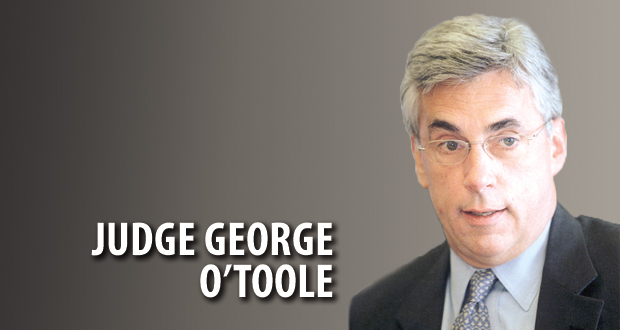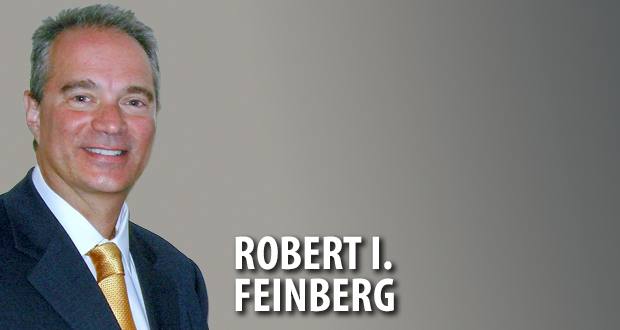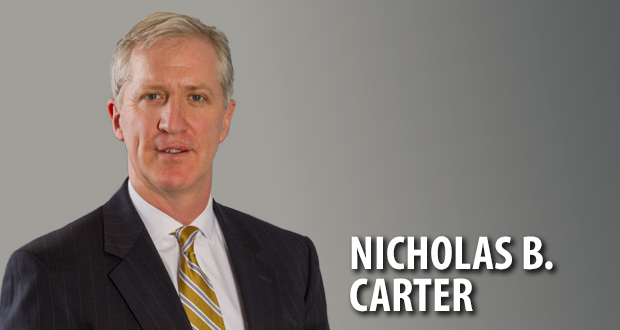 A decision by a federal judge in Boston provides a rare glimpse into the internal dynamics of the relationship between the primary and excess liability insurers for a personal injury defendant prior to an unexpected multi-million-dollar verdict that sparked a suit over “mishandled” settlement negotiations.
A decision by a federal judge in Boston provides a rare glimpse into the internal dynamics of the relationship between the primary and excess liability insurers for a personal injury defendant prior to an unexpected multi-million-dollar verdict that sparked a suit over “mishandled” settlement negotiations.
U.S. District Court Judge George A. O’Toole Jr. in Massachusetts found defendant Granite State Insurance Co. was not liable to plaintiff Great American Insurance Co. for failing to settle a negligence suit brought by Amadeo Gallotto against the parties’ insured, Parkview Condominium Trust. Gallotto’s lawsuit ultimately yielded a $7.5 million judgment in Middlesex Superior Court, triggering Great American’s obligation to provide excess coverage.
Gallotto’s attorney, Robert I. Feinberg, made pre-trial demands in excess of $2 million. Great American contended Granite State should have accepted a $900,000 settlement offer made by Feinberg during the state trial, a number within Granite State’s $1 million policy limit.
 “In light of this decision, in serious cases which often have heavily contested facts, primary insurers generally will not fear repercussions from the excess insurers.”
“In light of this decision, in serious cases which often have heavily contested facts, primary insurers generally will not fear repercussions from the excess insurers.”
— Robert I. Feinberg, Brookline
O’Toole found Granite State did not breach a duty in failing to settle with Gallotto.
“Great American has not shown that ‘no reasonable insurer would have refused [the $900,000] settlement offer’ at the time it was made,” O’Toole wrote in his March 31 findings of fact and conclusions of law in Great American Insurance Co. v. Granite State Insurance Co.
‘Textbook’ case
Though Feinberg was the architect of the verdict obtained by Gallotto in state court, the Brookline attorney also had a front-row seat to the legal battle between the two insurance companies as he was an essential witness on the course of settlement negotiations in his client’s case.
Feinberg said Great American makes it tougher for plaintiffs’ attorneys to negotiate settlements with primary insurers given the high standard of imposing liability for failure to settle.
“In light of this decision, in serious cases which often have heavily contested facts, primary insurers generally will not fear repercussions from the excess insurers,” Feinberg said.
 “Here’s a case that [plaintiffs’ attorneys] can use to motivate excess carriers to put up money to settle significant cases that might exceed the limits of the underlying insurance.”
“Here’s a case that [plaintiffs’ attorneys] can use to motivate excess carriers to put up money to settle significant cases that might exceed the limits of the underlying insurance.”
— Nicholas B. Carter, Boston
Boston litigator Nicholas B. Carter agreed.
“As long as the primary carrier is engaged at some level in the negotiating process, then the primary carrier is probably going to be OK,” Carter said. “That’s what happened in this case. The primary carrier was pretty obstinate but engaged in the negotiating process.”
But Carter also sees how Great American could be useful to plaintiffs.
“Here’s a case that [plaintiffs’ attorneys] can use to motivate excess carriers to put up money to settle significant cases that might exceed the limits of the underlying insurance,” he said.
According to Boston business litigator Robert R. Pierce, the fact that Granite State kept Great American “in the mix” in terms of developments in the underlying case was “huge” in terms of avoiding liability in the federal case.
“If the [defense] lawyer and the underlying carrier keep the excess carrier apprised and give their sincere opinion on liability and damages, it will be the rare case where that underlying carrier will be found to have unreasonably failed to settle the case,” Pierce said.
O’Toole’s decision falls squarely in line with the Supreme Judicial Court’s landmark decision in Hartford Casualty Insurance Co. v. New Hampshire Insurance Co., Feinberg pointed out.
The 1994 decision cited by O’Toole addressed the nature of the duty that a primary insurer owes to its policyholder and subrogated excess insurer with respect to the settlement of a third-party claim.
The SJC recognized the general rule in Massachusetts that a liability insurer is subject to a standard of reasonableness in conducting a defense of an insured. The Hartford court further recognized that a primary insurer’s duty to act reasonably extends to an excess insurer as subrogee of the insured.
The court clarified that “the test is not whether a reasonable insurer might have settled the case within the policy limits, but rather whether no reasonable insurer would have failed to settle the case within the policy limits.”
“That’s a very difficult standard for either an insured or an excess carrier to go after the underlying carrier, particularly where you have experienced counsel providing the advice that they’re likely to win,” Pierce said.
Underlying case
Granite State was the primary liability insurer for Parkview, the owner of a high-rise condominium apartment building sued by Gallotto, a repairman who suffered severe injuries when steam exploded from a pressurized water tank he was servicing on the property. Granite State provided liability coverage up to $1 million. Great American’s policy provided excess coverage up to $5 million.
Granite State chose Boston attorney Christopher Flanagan to serve as defense counsel for Parkview.
In 2011, a state jury found both Parkview and Gallotto negligent, allocating 90 percent of comparative fault to Parkview and 10 percent to Gallotto. The jury awarded $5.75 million in damages to Gallotto. The jury also awarded $450,000 to Gallotto’s wife and son for loss of consortium. With a reduction in damages for the plaintiff’s comparative fault and the addition of interest, the final judgment against Parkview approached $7.5 million.
Great American’s federal lawsuit alleged Granite State mishandled settlement negotiations in the Gallotto action, ultimately forcing Great American to pay its policy limit on the claim. The judge conducted an 11-day bench trial on the plaintiff’s claim in 2016. O’Toole’s decision included his findings of fact and conclusions of law.
According to the judge’s findings of fact, a year before the trial on Gallotto’s claims, Feinberg made a formal settlement demand of $2.5 million. At around the same time, the defense attorney, Flanagan, estimated the case had a settlement value of $500,000 to $700,000.
Though Flanagan estimated the potential for a jury verdict ranging from $1.5 to $2 million, he remained confident of a favorable outcome should the case go to trial as there was strong evidence of comparative negligence. Specifically, there was evidence that the accident occurred because Gallotto failed to take certain safety precautions before opening a valve to the water tank.
Because of the strength of his case, Flanagan at one point estimated the likelihood of a defense verdict at 70 percent. Mediation prior to trial was unsuccessful, with the plaintiff’s demand never falling below $2.15 million and Granite State never offering more than $200,000.
Meanwhile, Flanagan was sending copies of his case evaluations to Great American, at one point advising the excess insurer that the case might be settled for between $1 million and $1.5 million.
Just before the start of trial, Great American pressed Granite State to settle the case for the primary insurer’s $1 million policy limit, even though Feinberg had given no indication that he would settle his client’s claims for that amount.
Feinberg said there were several factors that concerned him about his client’s case as trial commenced in March 2011. First, the trial judge granted a defense motion in limine that precluded Feinberg from introducing business records showing his client had previously walked away from similar jobs whenever he detected safety issues like the one that resulted in his injuries. Feinberg was also concerned about damaging testimony by a co-worker of Gallotto’s.
The day after trial began, Feinberg suggested he might take an offer less than the policy limit in the $900,000 range. At the suggestion of Granite State, Flanagan made a “high-low” counteroffer with a $200,000 low and a $1 million high. Feinberg rejected the counteroffer.
Turning point
At the end of the second day of trial, Feinberg floated the idea of a $650,000 settlement. Feinberg would later testify at the federal trial that he did not intend the $650,000 to be a new demand, and only floated that number to test the defense’s commitment to its $200,000 settlement offer during mediation.
In fact, the following day Granite State increased its offer to $300,000.
Instead of rejecting the offer verbally, Feinberg “simply turned and walked away,” according to the court.
Feinberg told Lawyers Weekly his position on settlement hardened as the trial progressed based in large part on the effective testimony of his client.
“To hear him was to believe him,” Feinberg said. “After Gallotto testified, my attitude toward settlement changed.”
But according to Feinberg, the defense seemed to completely miss the swing in momentum.
“After the plaintiff gave credible and gripping testimony that spoke to both negligence and damages, the underlying carrier barely increased its offer,” Feinberg said. “That’s why I walked away without answering.”
At the end of the first week of trial, Feinberg proposed a hi-low of $300,000 to $1.5 million. Even though the offer implicated excess coverage, O’Toole noted that Great American chose not to participate in settlement talks. Instead, the excess insurer reiterated its demand that Granite State settle the case for the limits of its primary policy.
O’Toole explained the primary insurer’s predicament.
“Granite State was not in a position itself to offer a higher number; that required participation by Great American, which was quite plainly keeping its distance (suggesting that it accepted Flanagan’s assessment of the chances of a defense verdict or a substantial reduction in the amount of a damage award),” the judge wrote. “Even if the plaintiffs lost, they would still have some recovery. That [$200,000 low/$1 million high proposal], which put at risk the full policy amount, was far from an unreasonable offer by Granite State.”
Feinberg subsequently made a flat figure demand for $1.5 million, at which point Granite State determined settlement negotiations were over. The Monday after the first week of trial, the jury returned its verdict in favor of Gallotto and his family.
“In my opinion, neither insurer wanted to believe what was coming,” Feinberg said.
Carter sees a clear lesson for excess insurers.
“Excess carriers need to be more actively involved in trying to settle cases and need to put up money [to reach a settlement],” he said. “Complaining after the fact and suing the primary carrier for negligence is rarely going to succeed.”
Boston attorney William L. Boesch represents plaintiff Great American. Keith P. Carroll, also of Boston, represents Granite State. Both lawyers declined to comment while the case is pending.
 New England Biz Law Update
New England Biz Law Update
